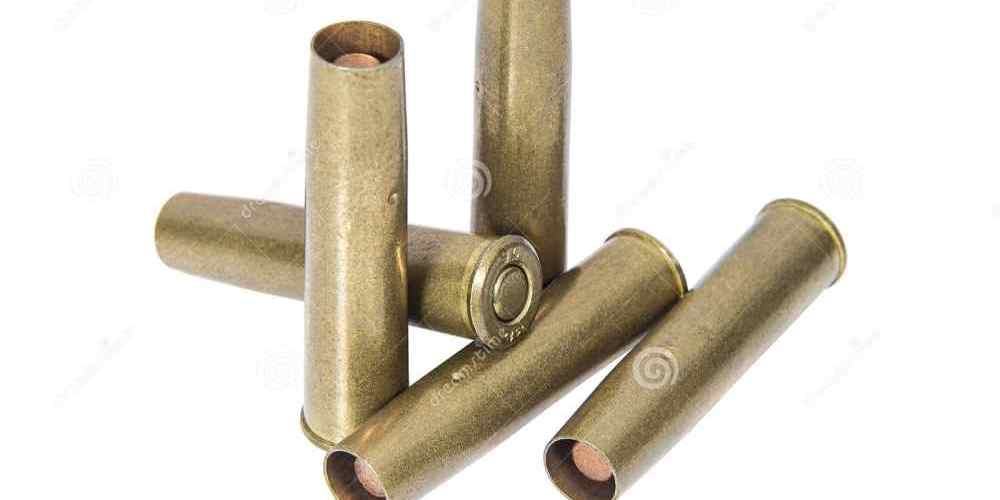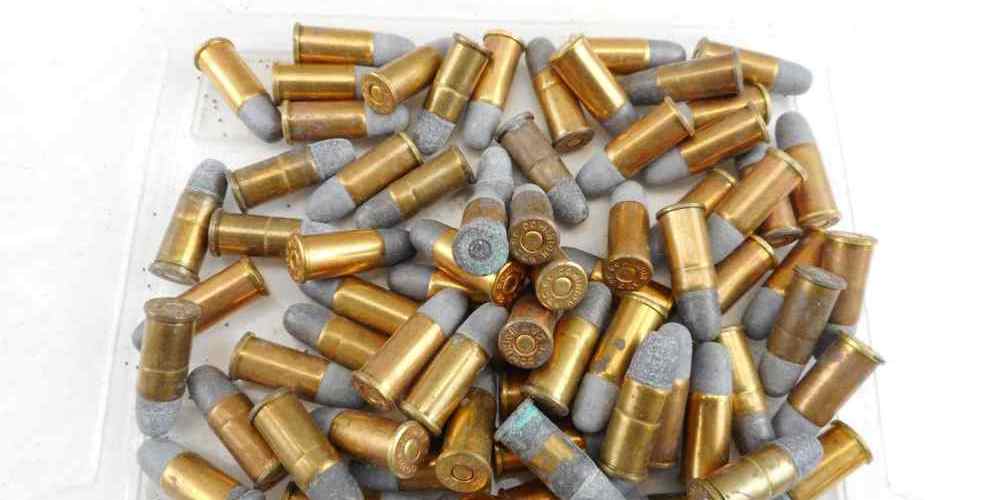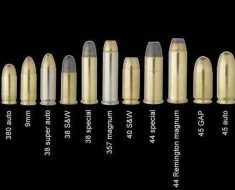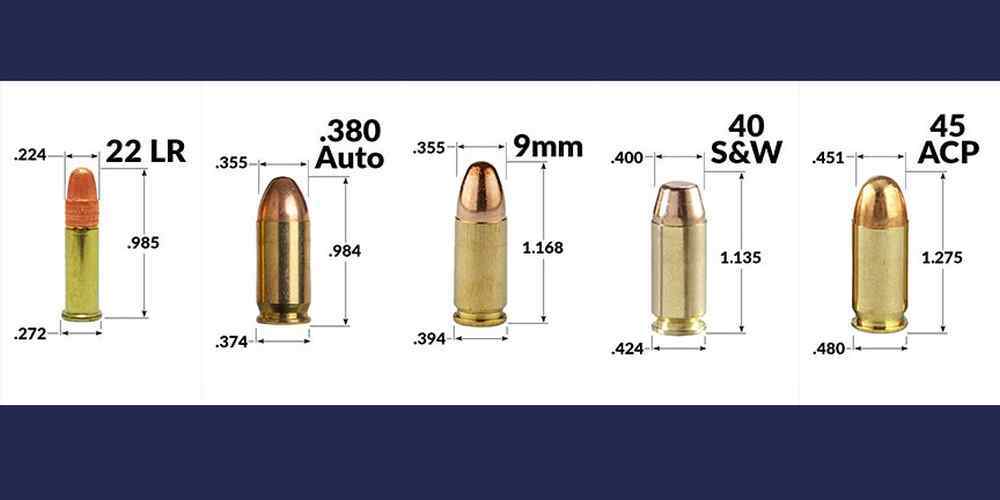“Maximizing firepower, minimizing wear and tear.”
Types of Ammunition That Cause the Most Wear on Revolvers
When it comes to owning a revolver, one of the key factors to consider is the type of ammunition you use. Different types of ammunition can have varying impacts on the wear and tear of your revolver. In this article, we will explore the types of ammunition that cause the most wear on revolvers and how you can minimize this impact. One of the most common types of ammunition that can cause wear on revolvers is +P ammunition. +P ammunition is loaded to higher pressures than standard ammunition, which can put additional stress on the revolver’s components. This can lead to increased wear on the cylinder, forcing cone, and other parts of the revolver. While +P ammunition can offer increased performance, it is important to be mindful of the potential impact on your revolver. Another type of ammunition that can cause wear on revolvers is steel-cased ammunition. Steel-cased ammunition is typically cheaper than brass-cased ammunition, but it can be harder on the revolver’s extractor and chamber. The harder steel casing can cause increased friction and wear on these components, leading to potential malfunctions and reduced reliability. If you choose to use steel-cased ammunition, it is important to regularly inspect and maintain your revolver to prevent excessive wear. In addition to +P and steel-cased ammunition, certain types of bullets can also contribute to wear on revolvers. Hollow point bullets, for example, can cause increased wear on the rifling of the barrel due to their design. The sharp edges of the hollow point can scrape against the rifling, leading to accelerated wear over time. While hollow point bullets are popular for self-defense purposes, it is important to be aware of their potential impact on your revolver. To minimize the wear and tear caused by ammunition on your revolver, there are a few steps you can take. First, it is important to regularly clean and lubricate your revolver to prevent excessive friction and wear. By keeping your revolver clean and well-maintained, you can help extend its lifespan and reduce the impact of ammunition on its components. Additionally, it is important to carefully inspect your revolver after each shooting session to look for signs of wear or damage. Pay close attention to the cylinder, forcing cone, and other high-stress areas to identify any potential issues early on. By catching problems early, you can address them before they become more serious and costly to repair. In conclusion, the type of ammunition you use can have a significant impact on the wear and tear of your revolver. +P ammunition, steel-cased ammunition, and certain types of bullets can all contribute to increased wear on your revolver’s components. By being mindful of the potential impact of different types of ammunition and taking proactive steps to maintain your revolver, you can help minimize wear and extend the lifespan of your firearm. Remember to regularly clean and inspect your revolver to ensure it remains in optimal condition for years to come.
How Regularly Firing Certain Ammunition Can Affect Revolver Longevity
When it comes to owning a revolver, one of the key factors to consider is the type of ammunition you use. The type of ammunition you choose can have a significant impact on the wear and tear of your revolver over time. In this article, we will explore how regularly firing certain types of ammunition can affect the longevity of your revolver. One of the most important factors to consider when choosing ammunition for your revolver is the caliber. The caliber of a bullet refers to its diameter, and different calibers can have different effects on your revolver. For example, using a higher caliber bullet can put more stress on the revolver’s components, leading to increased wear and tear over time. On the other hand, using a lower caliber bullet may result in less wear and tear on the revolver. Another factor to consider when choosing ammunition for your revolver is the type of bullet. There are several different types of bullets available, including full metal jacket, hollow point, and lead round nose. Each type of bullet has its own unique characteristics that can affect the wear and tear of your revolver. For example, full metal jacket bullets are typically more durable and can cause less wear on the revolver’s barrel compared to hollow point bullets, which can expand upon impact and cause more friction. In addition to the caliber and type of bullet, the amount of powder in the cartridge can also impact the wear and tear of your revolver. Using cartridges with a higher powder load can result in increased pressure and stress on the revolver’s components, leading to faster wear and tear. It is important to carefully consider the powder load of the ammunition you use to ensure that it is appropriate for your revolver. Furthermore, the frequency at which you fire your revolver can also affect its longevity. Regularly firing your revolver can cause increased wear on the barrel, cylinder, and other components. It is important to properly maintain and clean your revolver after each use to prevent excessive wear and tear. Additionally, rotating the ammunition you use can help distribute the wear more evenly across the revolver’s components. In conclusion, the type of ammunition you use can have a significant impact on the wear and tear of your revolver. Factors such as caliber, bullet type, powder load, and firing frequency all play a role in determining how long your revolver will last. By carefully considering these factors and properly maintaining your revolver, you can help ensure that it remains in good condition for years to come. Remember to always follow manufacturer recommendations and guidelines when selecting and using ammunition for your revolver.
The Importance of Properly Cleaning and Maintaining Revolvers After Firing Ammunition
Revolver enthusiasts know that proper maintenance is key to keeping their firearms in top condition. One crucial aspect of revolver maintenance is cleaning and maintaining the gun after firing ammunition. The impact of ammunition on revolver wear and tear cannot be underestimated, and neglecting this aspect of maintenance can lead to serious issues down the line. When a revolver is fired, the ammunition leaves behind residue and fouling in the barrel, chambers, and other parts of the gun. This residue can build up over time and cause malfunctions, decreased accuracy, and even damage to the gun itself. Regular cleaning and maintenance after firing ammunition is essential to prevent these issues and keep the revolver functioning properly. After firing ammunition, the first step in cleaning a revolver is to ensure that it is unloaded and the cylinder is open. This is a crucial safety precaution that should never be overlooked. Once the gun is safely unloaded, the next step is to disassemble it for cleaning. Different revolvers have different disassembly procedures, so it is important to consult the manufacturer’s instructions for your specific model. Once the revolver is disassembled, the next step is to clean the barrel and chambers. A cleaning rod with a bore brush and solvent can be used to remove fouling and residue from these areas. It is important to clean the barrel and chambers thoroughly to ensure that no residue is left behind. Failure to do so can lead to corrosion and other issues that can affect the gun’s performance. After cleaning the barrel and chambers, the next step is to clean the other parts of the revolver, such as the frame, cylinder, and trigger mechanism. A toothbrush and solvent can be used to remove residue and fouling from these areas. It is important to pay attention to small crevices and hard-to-reach areas, as residue can build up in these areas and cause malfunctions. Once the revolver is clean, the next step is to lubricate it. Proper lubrication is essential to prevent wear and tear on the gun’s moving parts and ensure smooth operation. A small amount of gun oil should be applied to the moving parts of the revolver, such as the cylinder, trigger mechanism, and hammer. It is important not to over-lubricate the gun, as this can attract dirt and debris and cause malfunctions. In addition to cleaning and lubricating the revolver, it is also important to inspect it for any signs of wear or damage. Regular inspection can help identify issues before they become serious problems and ensure that the gun remains in top condition. If any wear or damage is found, it is important to address it promptly to prevent further issues. In conclusion, the impact of ammunition on revolver wear and tear is significant, and proper cleaning and maintenance after firing ammunition is essential to prevent issues and keep the gun functioning properly. By following the steps outlined above and taking care of your revolver, you can ensure that it remains in top condition for years to come.
Ways to Minimize Wear and Tear on Revolvers When Using Different Types of Ammunition
When it comes to using a revolver, one of the key factors that can impact its longevity and performance is the type of ammunition you use. Different types of ammunition can have varying effects on the wear and tear of your revolver, so it’s important to choose wisely. In this article, we will explore the impact of ammunition on revolver wear and tear, and provide some tips on how to minimize damage when using different types of ammunition. First and foremost, it’s important to understand that not all ammunition is created equal. Some types of ammunition are designed to be more powerful and have a higher velocity, while others are designed to be more lightweight and have a lower recoil. The type of ammunition you choose can have a significant impact on the wear and tear of your revolver. For example, using high-powered ammunition with a lot of recoil can put more stress on the internal components of your revolver, leading to faster wear and tear. One way to minimize wear and tear on your revolver when using different types of ammunition is to choose ammunition that is specifically designed for your revolver. This means using ammunition that is the correct caliber and weight for your revolver, as well as ammunition that is within the recommended pressure range. Using ammunition that is not designed for your revolver can cause excessive wear on the barrel, cylinder, and other internal components, leading to potential malfunctions and reduced accuracy. Another way to minimize wear and tear on your revolver is to regularly clean and maintain your firearm. Cleaning your revolver after each use can help remove any residue or debris that may have built up from firing different types of ammunition. Regular maintenance, such as lubricating moving parts and inspecting for any signs of wear, can also help prevent damage and prolong the life of your revolver. In addition to choosing the right ammunition and maintaining your revolver, it’s also important to practice proper shooting techniques. Using proper grip and stance can help reduce recoil and minimize the impact of high-powered ammunition on your revolver. Additionally, practicing good trigger control and following proper safety protocols can help prevent accidental damage to your revolver. Overall, the type of ammunition you use can have a significant impact on the wear and tear of your revolver. By choosing the right ammunition, regularly cleaning and maintaining your revolver, and practicing proper shooting techniques, you can minimize damage and prolong the life of your firearm. Remember to always follow manufacturer recommendations and safety guidelines when using different types of ammunition, and consult with a firearms expert if you have any questions or concerns. By taking these steps, you can enjoy using your revolver for years to come.
The Long-Term Effects of Ammunition on Revolver Performance and Functionality
When it comes to owning a revolver, one of the key factors that can greatly impact its performance and longevity is the type of ammunition that is used. The ammunition you choose to load into your revolver can have a significant impact on the wear and tear of the firearm over time. In this article, we will explore the long-term effects of ammunition on revolver performance and functionality. One of the most important considerations when selecting ammunition for your revolver is the caliber. Different calibers have varying levels of power and pressure, which can affect how the revolver functions and how much stress it puts on the internal components. Using ammunition that is too powerful for your revolver can cause excessive wear on the barrel, cylinder, and other parts of the firearm. Another factor to consider is the type of bullet used in the ammunition. Full metal jacket bullets are typically less damaging to the revolver than hollow point or soft point bullets, as they create less friction and heat when fired. This can help to reduce wear on the barrel and other components of the revolver over time. The quality of the ammunition is also an important factor to consider. Cheap, low-quality ammunition can cause malfunctions and damage to the revolver, as the components may not be manufactured to the same standards as higher-quality ammunition. It is important to invest in good quality ammunition to ensure the longevity and performance of your revolver. In addition to the type and quality of the ammunition, the frequency of use can also impact the wear and tear on your revolver. Regularly shooting your revolver can cause gradual wear on the internal components, such as the firing pin, cylinder, and barrel. It is important to properly clean and maintain your revolver after each use to prevent excessive wear and ensure optimal performance. Proper maintenance is key to preserving the longevity of your revolver. Regularly cleaning and lubricating the internal components can help to prevent corrosion and reduce friction, which can extend the life of the firearm. It is also important to inspect the revolver for any signs of wear or damage, such as cracks or pitting, and address any issues promptly to prevent further damage. In conclusion, the type, caliber, quality, and frequency of use of ammunition can all have a significant impact on the wear and tear of your revolver. By selecting high-quality ammunition that is appropriate for your revolver, properly maintaining the firearm, and using it responsibly, you can help to ensure its longevity and optimal performance. Remember to always follow the manufacturer’s recommendations for ammunition and maintenance to keep your revolver in top condition for years to come.







